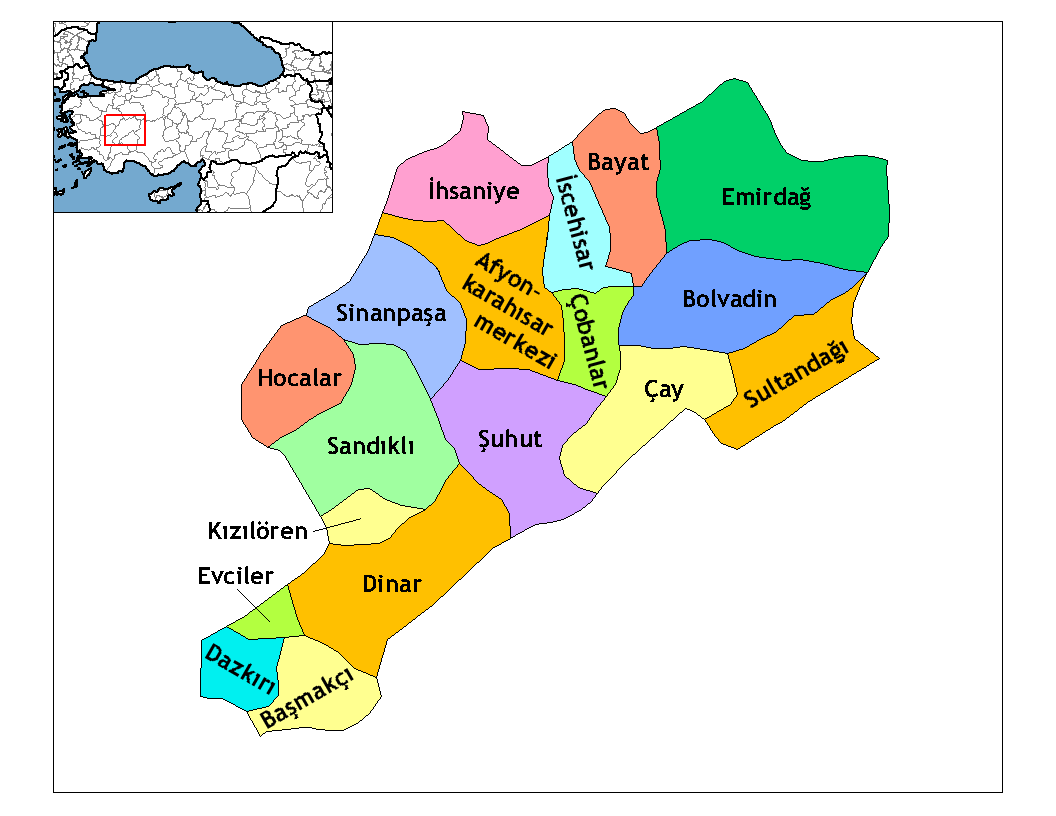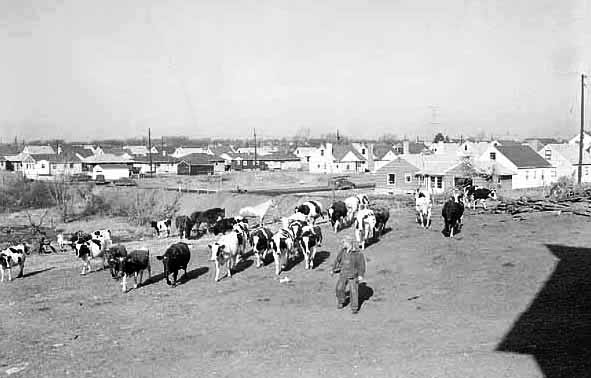|
Sultanbeyli
Sultanbeyli () is a municipality and district of Istanbul Province, Turkey. Its area is 29 km2, and its population is 358,201 (2022). It is located inland on the Asian side ( Anadolu Yakasi) of the city. The mayor is Ali Tombaş of the Justice and Development Party. Sultanbeyli is a landlocked district, bordered by Sancaktepe to the west, Pendik to the east and Kartal to the south-west. History Historically the Sultanbeyli area was farmland on the far outskirts of Istanbul until 1945 when the large land holdings of the Ottoman period were broken up, and 7,500 acres of land around the old Ankara-Istanbul road was paralyzed for the settlement of Turkish migrants from Bulgaria. In 1957, Sultanbeyli was formally organized as a village; after its establishment, some shareholders began to sell their plots of land. The handover of the title deed for these sales could not be carried out because the forestry administration put restrictions on Sultanbeyli, but the sales continue ... [...More Info...] [...Related Items...] OR: [Wikipedia] [Google] [Baidu] |
Otoyol 4
Otoyol 4 (), named Anatolian Motorway () and abbreviated as O-4, is a toll motorway connecting the northwestern Marmara Region to the Central Anatolia Region in Turkey. It runs parallel to the D.100 for more than half of its length and then parallels the D750 for most of the eastern half. The O-4 is a major expressway in Turkey as it connects eastern Istanbul and the heavily urbanized northeastern shore of the Sea of Marmara to the nation's capital, Ankara. The O-4 also makes up part of the International E-road network E80 and E89 as well as the AH-1 of the Asian Highway Network. The O-4 is the longest completed motorway in Turkey spanning , just longer than the O-52. The partially-opened O-5 is expected to surpass the length of the O-4, when it is completed in 2019, with a total length of . but nowadays the longest motorway in Turkey is Otoyol 21 with the opening Ankara- Niğde section. Construction of the O-4 began in 1984 and was widely completed in 1992 excep ... [...More Info...] [...Related Items...] OR: [Wikipedia] [Google] [Baidu] |
Districts Of Turkey
The Provinces of Turkey, 81 provinces of Turkey are divided into 973 districts (''ilçeler''; sing. ''ilçe''). In the Ottoman Empire and in the early Turkish Republic, the corresponding unit was the ''qadaa, kaza''. Most provinces bear the same name as their respective provincial capital (political), capital districts. However, many urban provinces, designated as greater municipalities, have a center consisting of multiple districts, such as the provincial capital of Ankara Province, Ankara province, Ankara, The City of Ankara, comprising nine separate districts. Additionally three provinces, Kocaeli, Sakarya, and Hatay have their capital district named differently from their province, as İzmit, Adapazarı, and Antakya respectively. A district may cover both rural and urban areas. In many provinces, one district of a province is designated the central district (''merkez ilçe'') from which the district is administered. The central district is administered by an appointed pr ... [...More Info...] [...Related Items...] OR: [Wikipedia] [Google] [Baidu] |
Pendik
Pendik () is a municipality and district of Istanbul Province, Turkey. Its area is 190 km2, and its population is 750,435 (2022). It is on the Asian side between Kartal and Tuzla, on the Marmara Sea. It also neighbours Sultanbeyli, Sancaktepe and Çekmeköy from northwest, Şile from north and Gebze from northeast. The district is home to the Sabiha Gökçen International Airport. During the Roman, Byzantine and Latin Empire periods, the coastal town was known as Pantichium. Composition There are 36 neighbourhoods in Pendik District: * Ahmet Yesevi * Bahçelievler * Ballıca * Batı * Çamçeşme * Çamlık * Çınardere * Doğu * Dumlupınar * Emirli * Ertuğrul Gazi * Esenler * Esenyalı * Fatih * Fevzi Çakmak * Göçbeyli * Güllü Bağlar * Güzelyalı * Harmandere * Kavakpınar * Kaynarca * Kurna * Kurtdoğmuş * Kurtköy * Orhangazi * Orta * Ramazanoğlu * Sanayi * Sapan Bağları * Şeyhli * Sülüntepe * Velibaba * Yayalar * Yeni * Yenişehir * Yeşilb ... [...More Info...] [...Related Items...] OR: [Wikipedia] [Google] [Baidu] |
Kartal
Kartal () is a municipality and district of Istanbul Province, Turkey. Its area is 38 km2, and its population is 483,418 (2022). It is located on the Asian side of the city, on the coast of the Marmara Sea between Maltepe and Pendik. Despite being far from the city centre, Kartal is heavily populated (total population nearly 500,000). The district's neighbours are Maltepe to the west, Sultanbeyli and Sancaktepe to the north and Pendik to the east. Inland from the coast, the land rises sharply up to the hills Yakacık and Aydos, the latter of which is the highest point in Istanbul. History Kartal ('eagle' in Turkish, by folk etymology) was a fishing village on the shore of the Marmara Sea during the Byzantine Empire, called Kartalimen or Kartalimin in Greek, and was founded at the beginning of the 6th century. In the 11th century, the town was conquered by the ruler of the Seljuks, Suleyman Shah. In 1329, Kartal became part of the Ottoman Empire, the Byzantines re- ... [...More Info...] [...Related Items...] OR: [Wikipedia] [Google] [Baidu] |
Populated Places In Istanbul Province
Population is a set of humans or other organisms in a given region or area. Governments conduct a census to quantify the resident population size within a given jurisdiction. The term is also applied to non-human animals, microorganisms, and plants, and has specific uses within such fields as ecology and genetics. Etymology The word ''population'' is derived from the Late Latin ''populatio'' (a people, a multitude), which itself is derived from the Latin word ''populus'' (a people). Use of the term Social sciences In sociology and population geography, population refers to a group of human beings with some predefined feature in common, such as location, race, ethnicity, nationality, or religion. Ecology In ecology, a population is a group of organisms of the same species which inhabit the same geographical area and are capable of interbreeding. The area of a sexual population is the area where interbreeding is possible between any opposite-sex pair within the area ... [...More Info...] [...Related Items...] OR: [Wikipedia] [Google] [Baidu] |
Mahalle
is an Arabic word variously translated as district, quarter, ward, or neighborhood in many parts of the Arab world, the Balkans, Western Asia, the Indian subcontinent, and nearby nations. History Historically, mahallas were autonomous social institutions built around familial ties and Islamic rituals. Today it is popularly recognised also by non-Muslims as a neighbourhood in large cities and towns. Mahallas lie at the intersection of private family life and the public sphere. Important community-level management functions are performed through mahalle solidarity, such as religious ceremonies, life-cycle rituals, resource management and conflict resolution. It is an official administrative unit in many Middle Eastern countries. The word was brought to the Balkans through Ottoman Turkish ''mahalle'', but it originates in Arabic محلة (''mähallä''), from the root meaning "to settle", "to occupy". In September 2017, a Turkish-based association referred to the historical mahalle ... [...More Info...] [...Related Items...] OR: [Wikipedia] [Google] [Baidu] |
Turkish Statistical Institute
Turkish Statistical Institute (commonly known as TurkStat; or TÜİK) is the Turkish government agency commissioned with producing official statistics on Turkey, its population, resources, economy, society, and culture. It was founded in 1926 and headquartered in Ankara. Formerly named as the State Institute of Statistics (Devlet İstatistik Enstitüsü (DİE)), the institute was renamed as the Turkish Statistical Institute on November 18, 2005. See also * List of Turkish provinces by life expectancy References External linksOfficial website of the institute National statistical services Statistical Statistics (from German language, German: ', "description of a State (polity), state, a country") is the discipline that concerns the collection, organization, analysis, interpretation, and presentation of data. In applying statistics to a s ... Organizations established in 1926 Organizations based in Ankara {{Sci-org-stub ... [...More Info...] [...Related Items...] OR: [Wikipedia] [Google] [Baidu] |
Suburb
A suburb (more broadly suburban area) is an area within a metropolitan area. They are oftentimes where most of a metropolitan areas jobs are located with some being predominantly residential. They can either be denser or less densely populated than the city and can have a higher or lower rate of detached single family homes than the city as well. Suburbs can have their own political or legal jurisdictions, especially in the United States, but this is not always the case, especially in the United Kingdom, where most suburbs are located within the administrative boundaries of cities. In most English-speaking world, English-speaking countries, suburban areas are defined in contrast to core city, central city or inner city areas, but in Australian English and South African English, ''suburb'' has become largely synonymous with what is called a "neighborhood" in the U.S. Due in part to historical trends such as white flight, some suburbs in the United States have a higher population ... [...More Info...] [...Related Items...] OR: [Wikipedia] [Google] [Baidu] |
Working Class
The working class is a subset of employees who are compensated with wage or salary-based contracts, whose exact membership varies from definition to definition. Members of the working class rely primarily upon earnings from wage labour. Most common definitions of "working class" in use in the United States limit its membership to workers who hold blue-collar and pink-collar jobs, or whose income is insufficiently high to place them in the middle class, or both. However, socialists define "working class" to include all workers who fall into the category of requiring income from wage labour to subsist; thus, this definition can include almost all of the working population of industrialized economies. Definitions As with many terms describing social class, ''working class'' is defined and used in different ways. One definition used by many socialists is that the working class includes all those who have nothing to sell but their labour, a group otherwise referred to as the p ... [...More Info...] [...Related Items...] OR: [Wikipedia] [Google] [Baidu] |
Slum
A slum is a highly populated Urban area, urban residential area consisting of densely packed housing units of weak build quality and often associated with poverty. The infrastructure in slums is often deteriorated or incomplete, and they are primarily inhabited by impoverished people."What are slums and why do they exist?" UN-Habitat, Kenya (April 2007) Although slums are usually located in urban areas, in some countries they can be located in suburban areas where housing quality is low and living conditions are poor. While slums differ in size and other characteristics, most lack reliable sanitation services, Water supply, supply of clean water, reliable electricity, law enforcement, and other basic services. Slum residences vary from shanty town, shanty houses to pr ... [...More Info...] [...Related Items...] OR: [Wikipedia] [Google] [Baidu] |
Municipality
A municipality is usually a single administrative division having municipal corporation, corporate status and powers of self-government or jurisdiction as granted by national and regional laws to which it is subordinate. The term ''municipality'' may also mean the governing body of a given municipality. A municipality is a general-purpose administrative subdivision, as opposed to a special district (United States), special-purpose district. The English language, English word is derived from French language, French , which in turn derives from the Latin language, Latin , based on the word for social contract (), referring originally to the Latin communities that supplied Rome with troops in exchange for their own incorporation into the Roman state (granting Roman citizenship to the inhabitants) while permitting the communities to retain their own local governments (a limited autonomy). A municipality can be any political jurisdiction (area), jurisdiction, from a sovereign state s ... [...More Info...] [...Related Items...] OR: [Wikipedia] [Google] [Baidu] |




